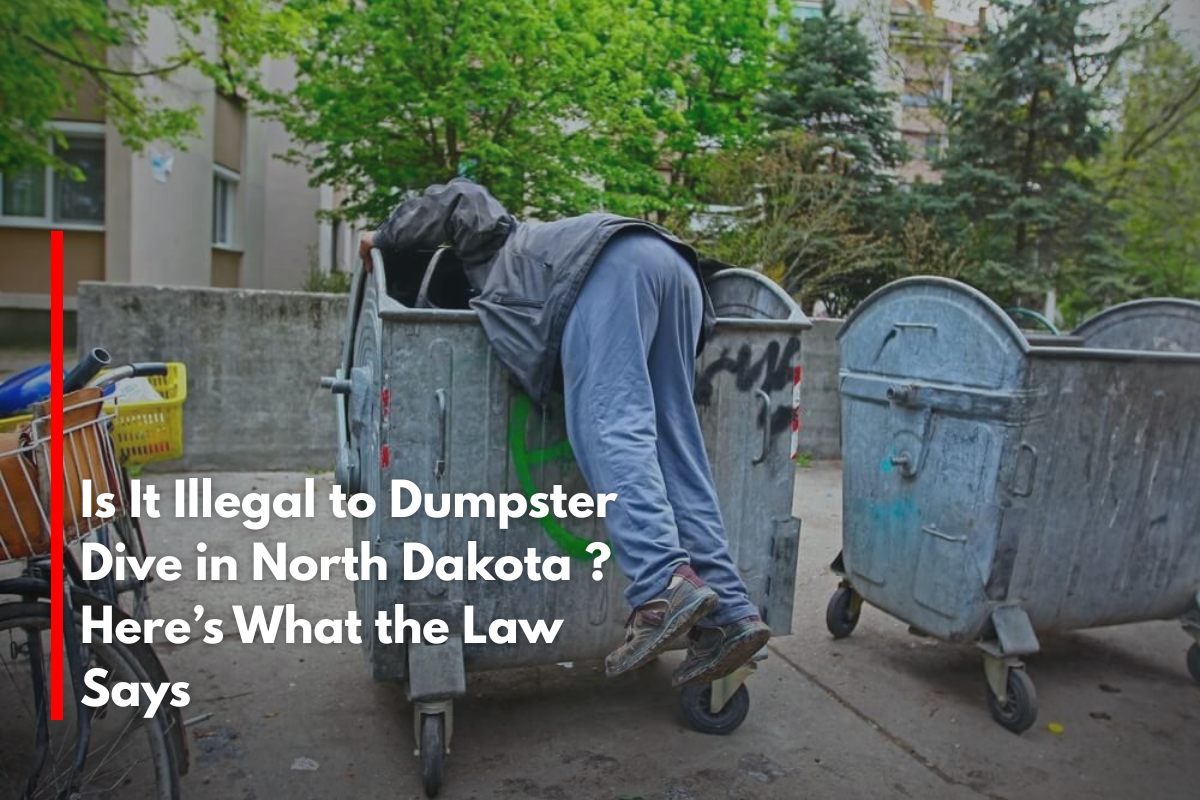Dumpster diving, also known as trash picking or urban foraging, involves searching through trash containers to find items that are usable, valuable, or recyclable. While often associated with scavenging for free goods, many people engage in dumpster diving to reduce waste and promote sustainability.
Legal Status of Dumpster Diving in North Dakota
In North Dakota, dumpster diving is generally legal, but there are important caveats to keep in mind. The state does not have any specific law that outright prohibits dumpster diving. According to a U.S. Supreme Court precedent, once trash is discarded and placed in a public dumpster, it is no longer considered private property, making it legally accessible to the public.
However, the legality depends heavily on location and property rights. Diving is permitted when done on public property where there is legal access to the dumpster.
Private Property and Trespassing Issues
Most dumpsters are located on private property, such as behind stores, restaurants, or apartment complexes. Entering these areas without permission is considered trespassing, which is illegal in North Dakota and can result in fines, citations, or even arrest. Additionally, dumpsters may be fenced off or secured by locks, further restricting access.
It is crucial to respect “No Trespassing” signs and avoid entering private land without consent. Unlike public spaces, private property owners have the right to defend their premises legally, and unauthorized access for dumpster diving can lead to legal trouble.
Dumpster Diving at Night: Legal but Risky
Performing dumpster diving during nighttime hours is not specifically illegal in North Dakota. However, doing so might arouse suspicion among neighbors or law enforcement, increasing the chance of being questioned, reported, or cited for other violations such as loitering or disorderly conduct.
Dumpsters and trash areas in the dark pose safety risks like injury, and there is increased potential for misunderstandings with property owners or police.
Local Ordinances and Variations
While state law does not prohibit dumpster diving, local municipalities may have ordinances that impose restrictions such as:
Banning dumpster access without permission
Regulating hours when accessing commercial trash bins is allowed
Prohibiting unauthorized salvage operations
It’s important for divers to check municipal codes from cities like Fargo or Bismarck to ensure compliance with local regulations.
Safety and Ethical Practices
Legal dumpster diving in North Dakota requires:
Avoiding locked or fenced dumpsters
Respecting posted signs
Getting permission when diving on private property
Being mindful of safety hazards (sharps, contaminants)
Leaving the area clean and not disturbing neighbors
These best practices help prevent legal conflicts and promote responsible urban foraging.
Dumpster diving in North Dakota is legal when conducted on public property or with property owner permission. The absence of a state prohibition grants access to discarded items in publicly accessible dumpsters. However, trespassing on private property is illegal and a common cause of legal problems.
Diving at night, while not banned, carries extra risk due to potential suspicions. Checking local ordinances and respecting property boundaries are essential steps for legal and safe dumpster diving in North Dakota.
By following local laws, respecting private property, and practicing caution, dumpster diving can be a sustainable and lawful activity in the state.
Sources
(https://collincountymagazine.com/2025/06/16/is-it-illegal-to-dumpster-dive-in-north-dakota-heres-what-the-law-says/)
(https://keyzradio.com/is-dumpster-diving-legal-in-north-dakota/)
(https://detectingtreasures.com/dumpster-diving-in-north-dakota/)
(https://hot975fm.com/is-it-legal-to-dumpster-dive-in-north-dakota/)
(https://www.legalmatch.com/law-library/article/is-dumpster-diving-illegal.html)











